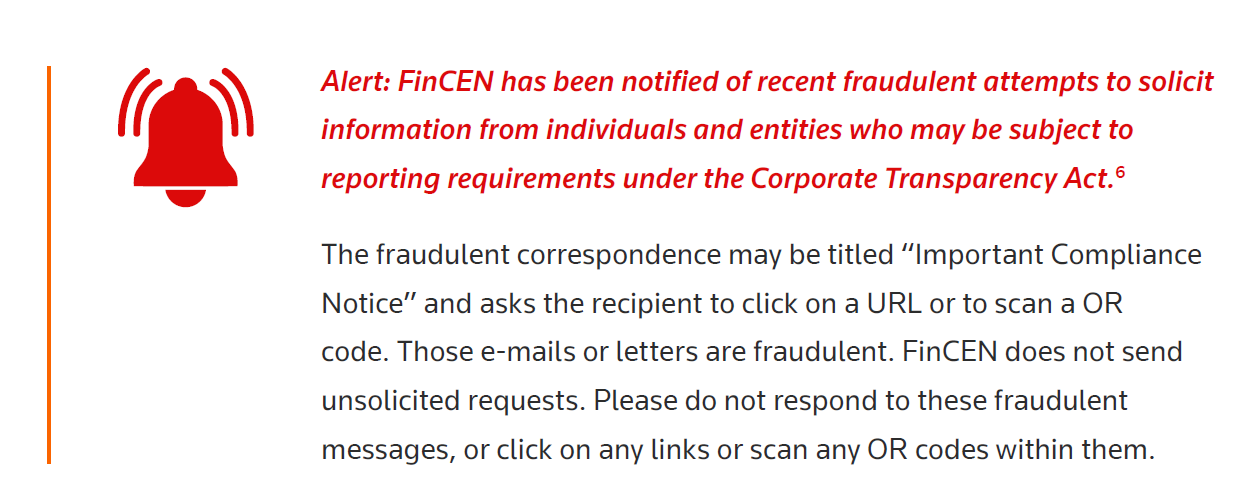The Beneficial Ownership Information database has gone live, but there is work to be done — from penalties to due diligence reconciliation, FinCEN has a far path to completion
After years of work, proposed rules, rounds of comments and official rule proposals, on January 1, there was a monumental shift in the United States’ financial crime landscape. That was the day that the Beneficial Ownership Information (BOI) Database went live.
This database adds a step in the process of setting up a business, requiring business owners to give information about the company’s beneficial owners to the Financial Crimes Enforcement Network (FinCEN), a division of the U.S. Treasury. This information can be used in future investigations and is expected to provide a greater level of transparency into companies’ true ownership.
In a new report from the Thomson Reuters Institute, US Beneficial Ownership Rules: Reporting, compliance & access, we discuss the origins of the BOI Database and how it is going to be used to better fight against financial fraud and money laundering.
As designed, FinCEN is using this database to collect the beneficial ownership as required by U.S. Corporate Transparency Act (CTA) that was enacted by Congress as part of the Anti-Money Laundering Act of 2020. For its part in the process, FinCEN has remained tightlipped about the database until the very end. There was no early access to the filing portion and only sporadic updates to a lengthy Frequently Asked Questions page. There was also no advance use of any chatbot or other features.
The BOI Database was met with curiosity, skepticism, and controversy by many industry experts, many of whom had their own ideas on exactly how the information would be collected and what might lie ahead. One of the biggest controversies was the simple question of would it work? Unfortunately, there was no real reassurance given.
Some experts estimated that there was no way that the system could work if there was no stress test or unless the process included the proper backend workers. This question is still something of a gray area, and only a fraction of the millions of businesses required to file have actually begun the filing process.
Another huge issue at the time of launch that is detailed in the report is the question of whether the BOI Database would be secure enough and protect the personally identifying information being collected. This stems not just from standard cybersecurity concerns, but from legitimate threats and warnings. While FinCEN was remaining silent about the process and the database, some scammers began to make efforts to collect personal information through phishing schemes. This was so rampant, that a red-flag warning was issued on the official website warning about these scams. Issues like this do little to gain the confidence of an already skeptical public about an unknown database with unknown testing.

In addition to these concerns, there was no clarity about which parties will have access to this private information, when they will get access, and what they could do with it once they have it. This lack of clear information was compounded by FinCEN’s inaction, which included waiting until the proverbial 11th hour to release a final rule about which parties would have access to the database. The rule release, and the briefing that accompanied it, offered a very broad timing for access to begin and lacked any further depth.
The purpose of the CTA was to close loopholes that could be exploited to evade taxes or launder money by entities doing business in the United States. Many other nations, including the United Kingdon, Canada, Australia, France, South Africa, and the European Union, have all taken strides to close these loopholes. As the geopolitical landscape changes, it becomes more important for all nations to take these steps to limit nefarious actors access to funds.
In ideal conditions, the BOI Database would allow proper enforcement of everything from tax codes to sanctions. In this ideal situation, the financial penalties and prison sentences would be enough to deter any misuse of the US financial system for illicit ends.
In reality, however, there is a long way to go. There has to be clarity on how to properly use and enforce the BOI Database, and the new rules must be reconciled with current due diligence standards. While so much has been done, as the report point out, much work remains.
You can download the full report “US Beneficial Ownership Rules: Reporting, compliance & access” by filling out the form below:







